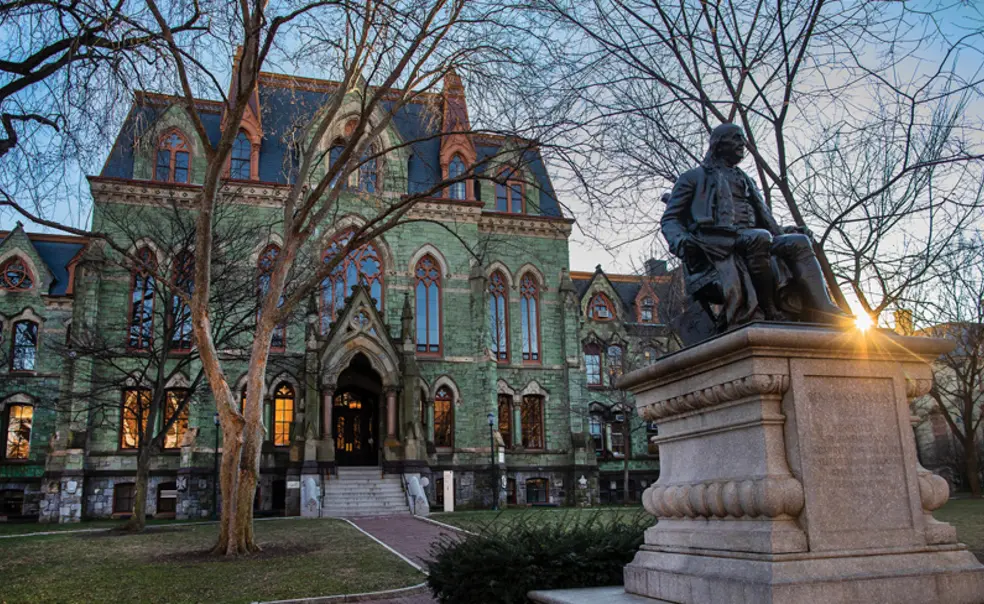Amid Federal Cuts, Seniors Aiming for Grad School Face a Difficult Path
Some seniors have even had their grad school admission offers rescinded
For Princeton seniors planning to continue their studies after graduation, the spring semester is usually filled with celebrations of admission to graduate schools. But this year, with uncertainty about federal research funding limiting incoming class sizes at some institutions, those offers have been harder to come by. In some cases, seniors have even had admission rescinded by the universities they were hoping to attend.
Sophia Huellstrunk ’25, a math major specializing in mathematical physics, was one of the fortunate ones, receiving acceptance into the math Ph.D. program at the University of Pennsylvania. “At the open house I went to at UPenn, they said that last year they had, I think, 14 students in the incoming class,” she said. “This year they were looking for six to eight, so it was really a halving of the normal amount.”
In Huellstrunk’s acceptance email, representatives from Penn acknowledged that “the number of offers we and other universities are able to make this year is drastically lower than usual due to federal budget cuts.” They urged admitted students to communicate their decisions quickly to help their departments and “the next deserving prospective graduate student on the backup list.”
“I’m feeling extremely lucky that I have an offer at a place that I like. I know a lot of excellent people who haven’t even gotten an offer. It’s tough because these people absolutely deserve to be at places where they can continue research and be happy,” said Huellstrunk.
One senior in the history department, who requested anonymity because he is still applying to graduate programs, said he received unofficial letters of acceptance from departments at both Penn and Vanderbilt.
However, Penn revoked its admission offer, and a few days later, he got an email from Peabody College at Vanderbilt that said it made the difficult decision to pause admissions to that program.
A senior in the molecular biology department, who asked to remain anonymous because they want to apply to graduate school next year, reported applying to nine graduate programs. They did not receive admission to any of them, adding that others in the department had seen similar results.
“It has been a rough year for grad school admissions,” said Misha Bilokur ’25, a physics major. “Many students who I considered to be very strong have one or no options.” Bilokur, one of the students this year to receive multiple admissions offers, will be pursuing a Ph.D. in physics this fall.
Princeton University was able to maintain graduate admissions as planned. “Princeton did not direct graduate programs to reduce the number of admission offers this year,” said Graduate School spokesperson Tracy Meyer. The school did not rescind offers to admitted students or change the status of current ones.
However, the University was not totally unaffected. “Given the uncertainties of this year, some departments opted to extend fewer offers,” Meyer said.
Grad school has traditionally been a popular path for Princeton graduates, drawing just under 300 seniors per year (roughly a quarter of all respondents) in the past five years, according to the Center for Career Development’s first destinations survey.
There might be light at the end of the tunnel. As the funding landscape continues to change rapidly, some universities are extending late offers.
Yvette Biddle ’25, a chemical and biological engineering major, said that she interviewed in early April for a Ph.D. program at UCLA, despite applying back in December. She was admitted the next day, but the acceptance came too late for Biddle, who had already secured a job at a pharmaceutical company.
The uncertainty of the current cycle is causing the Class of 2026 to start considering other options.
“I think the process has always been competitive, but now it’s a new level of competitiveness,” said Daryna Yushchenko ’26, a physics major who is planning on applying to graduate school.
The junior class has questions about the future of funding and whether class sizes will continue to be cut next year. “Nobody knows anything for certain. Right now, we’re just waiting and trying to make our applications as strong as possible,” said Yushchenko.












No responses yet